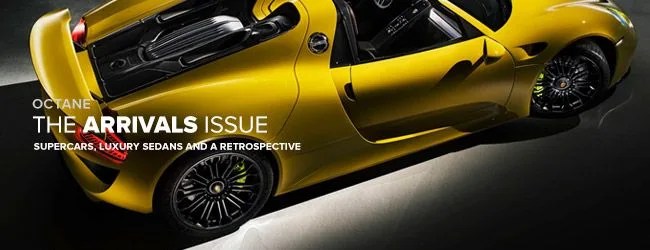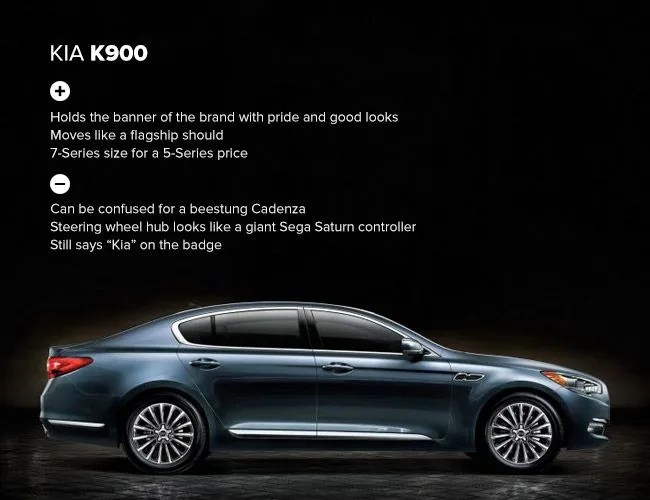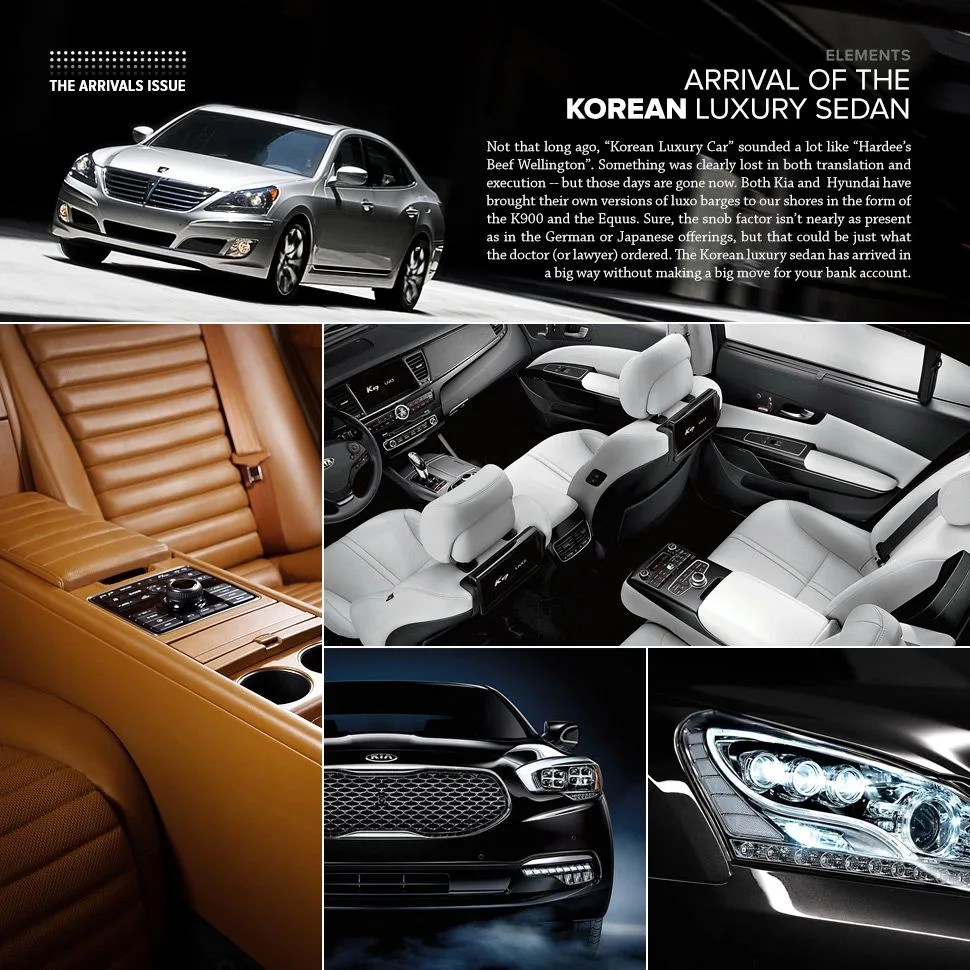Not that long ago, “Korean Luxury Car” sounded a lot like “Hardee’s Beef Wellington”. Something was clearly lost in both translation and execution — but those days are gone now. Both Kia and Hyundai have brought their own versions of luxo barges to our shores in the form of the K900 and the Equus. Sure, the snob factor isn’t nearly as present as in the German or Japanese offerings, but that could be just what the doctor (or lawyer) ordered. Both cars bear quality, tech and comfortable bits that any luxo-customer would desire, in spite of the lack of luxury badge cred. Though there’s room for improvement in the area of original design, there’s also no mistaking that the Korean luxury sedan has arrived in a big way without making a big move for your bank account.

Kia K900

Remember the Kia Amanti? Now forget about it. Nothing good can come from memories of a flagship wannabe that looked like a painful cross between a Russian taxi and a Chinese Hongqi limo. Kia’s K900 ($59,500) marks a transition from automotive pain to flagship gain. Its looks are unmistakably Kia, but the level of attention paid to the sheetmetal and trim bits is noticeably greater than its cheaper stablemates. The proportions are right, with short overhangs and well-placed creases, even though BMW 7-Series and Lexus LS influences are visible here and there. Then there are the performance numbers, which put it right where a flagship should be: 420 hp out of Kia’s first V8 provides movement with authority. Most important of all, everything about the K900 betrays the mindset of the ghosts of Korean luxo sedan past. It’s not trying to be German or Japanese; it’s working on being the best Kia sedan ever made.

